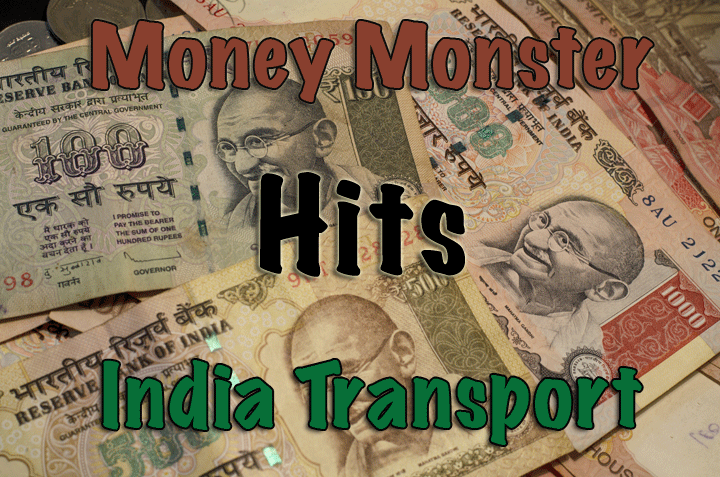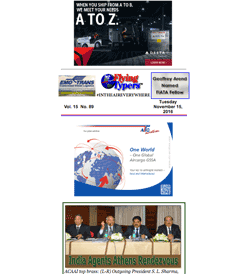
A
large sucking sound can be heard in India as more
than 15 trillion rupees (the 1,000 and 500 notes)
were ruled illegal. Asia’s third-largest economy
is experiencing a liquidity crisis.
The change came November
8, when Prime Minister Narendra Modi announced currency
notes of 1,000 rupees ($15) and 500 rupees ($7.50)
would no longer be legal in an effort to curb black
market activities and terrorism.
The news sent truckers
and express operators scrambling to get to the bank
as 90 percent of business in the country is done
in cash.
The banks were not
ready. As you read this, most are still unable to
satisfy demand as everyone is unloading the notes.
Trucks were stuck
because fuel pumps, tolls, and wayside eateries
refused to accept cash payments in 500 and 1,000
rupee notes.
According to reports,
upwards of 90 percent of the country’s million
trucks have been affected, with some now parked
on highways and roadsides.
The result? Deliveries
of vegetables, food products, and even medicines
have been delayed.
“The entire
supply chain took a punch in the nose,” a
source said.
“The money
squeeze is being felt from networks of suppliers
and distributors to sales teams. It has spread all
over the country as everyone is running short of
cash.”
But while revenues
have frozen, fixed costs, including wages, continue.
Welcome
to The Cash Queue
Although in many quarters wages are paid online,
employees are now faced with needing time away from
work to queue at the bank.
As a result, production
is slowing in many places.
  In the understatement of the year, Vijay Kumar,
Chief Operating Officer of the Express India Council
India (EICI is the body that aims to protect and
promote the common interests of Express Industry
and its members) said, “transporters should
have been given more time to take care of their
cash situation.”
In the understatement of the year, Vijay Kumar,
Chief Operating Officer of the Express India Council
India (EICI is the body that aims to protect and
promote the common interests of Express Industry
and its members) said, “transporters should
have been given more time to take care of their
cash situation.”
With around 9,300,000
truckers as members, All India Motor Transport Congress
(AIMTC) said trucks are stranded around the country
and government action is needed at once.
AIMTC President Bhim
Wadhwa told FT that the “sudden ban
on higher denomination notes have made drivers stand
in long queues before banks in different parts.
“The withdrawal
limit is minuscule, and with ATMs in many places
not working or out of cash, the transport business
is in crises,” he said.
“The transport
sector is the highest taxpayer to the exchequer,
but right now the road transport fraternity of India
is facing its worst crisis with the sudden banning
of these notes coupled with the inability to get
money to replace them,” Bhim Wadhwa said.
Joe
Lunch Bucket Takes It Tough
Right now alongside the transportation and other
India business, Mr. Ordinary Indian (or Aam Aadmi
in Hindi) has been waking up early every morning
to try to beat the crowds at his nearest bank.
With the December
30 deadline looming to trade in the rupees, ordinary
Indian people are utilizing some interesting alternatives.
Current conditions
have seen the rise of apps (like one app that shows
where ATMs are located).
A Delhi-based startup
called Book My Chotu offers ‘Chotus,’
or errand boys, who will stand in line for you at
the ATM for 90 rupees an hour.
Geoffrey
|





